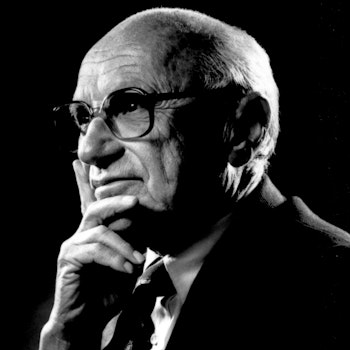Milton Friedman and Anna Jacobson Schwartzãs A Monetary History of the United States, 1867ã1960 is one of the most influential economics books of the twentieth century. A landmark achievement, it marshaled massive historical data and sharp analytics to argue that monetary policyãsteady control of the money supplyãmatters profoundly in the management of the nationãs economy, especially in navigating serious economic fluctuations. Perhaps no other chapter of this monumental book had a greater impact than ãThe Great Contraction, 1929ã33,ã which offered a fundamental reinterpretation of the central economic event of the twentieth centuryãthe Great Depression. The Great Contraction, 1929ã1933 presents that chapter, which runs to more than 200 pages, as a stand-alone book, in an edition that also features a new preface by Anna Jacobson Schwartz and a new introduction by the economist Peter Bernstein, both of which place the work and its lasting impact in context. In addition, the book includes a speech by Nobel Prizeãwinning economist and former chair of the Federal Reserve Ben Bernanke, in which he reflects on the continuing importance of Friedman and Schwartzãs work.
Milton Friedman (1912-2006) was awarded the Nobel Prize in Economics in 1976. He was a Senior Research Fellow at the Hoover Institution and had previously taught at the University of Chicago, from 1946 to 1976. He was also a member of the research staff of the National Bureau of Economic Research from 1937 to 1981. Anna Jacobson Schwartz (1915–2012) was a research associate at the National Bureau of Economic Research, which she joined in 1941. She is a Distinguished Fellow of the American Economic Association and a Fellow of the American Academy of Arts and Sciences. During her distinguished career, she has made major contributions to the economics of business cycles, banking, monetary policy, and financial regulation.
“One of [Friedman’s] greatest contributions to economics, made in close collaboration with his distinguished coauthor, Anna J. Schwartz. This achievement is nothing less than to provide what has become the leading and most persuasive explanation of the worst economic disaster in American history, the onset of the Great Depression. . . . The brilliance of Friedman and Schwartz’s work on the Great Depression is not simply the texture of the discussion or the coherence of the point of view. Their work was among the first to use history to address seriously the issues of cause and effect in a complex economic system.”—Ben S. Bernanke, Nobel Prize–winning economist and former chair of the U.S. Federal Reserve
“[A] sparking story of a tragedy. . . . The chapters of Friedman and Schwartz’s monetary history that relate the nightmares of the Great Contraction provide important guidelines for today’s authorities and their successors. Indeed, we cannot find a better way to comprehend today’s problems and proposed solutions than to turn to the invaluable legacy Friedman and Schwartz have left us.”—from the introduction by Peter L. Bernstein, New York Times bestselling author of Against the Gods: The Remarkable Story of Risk



